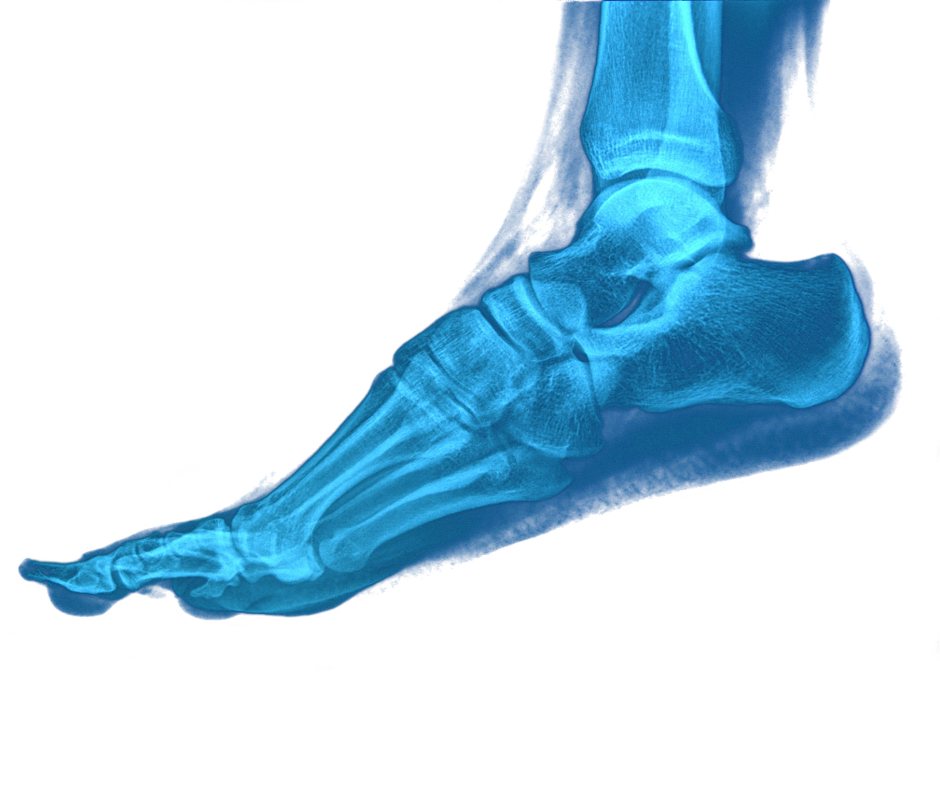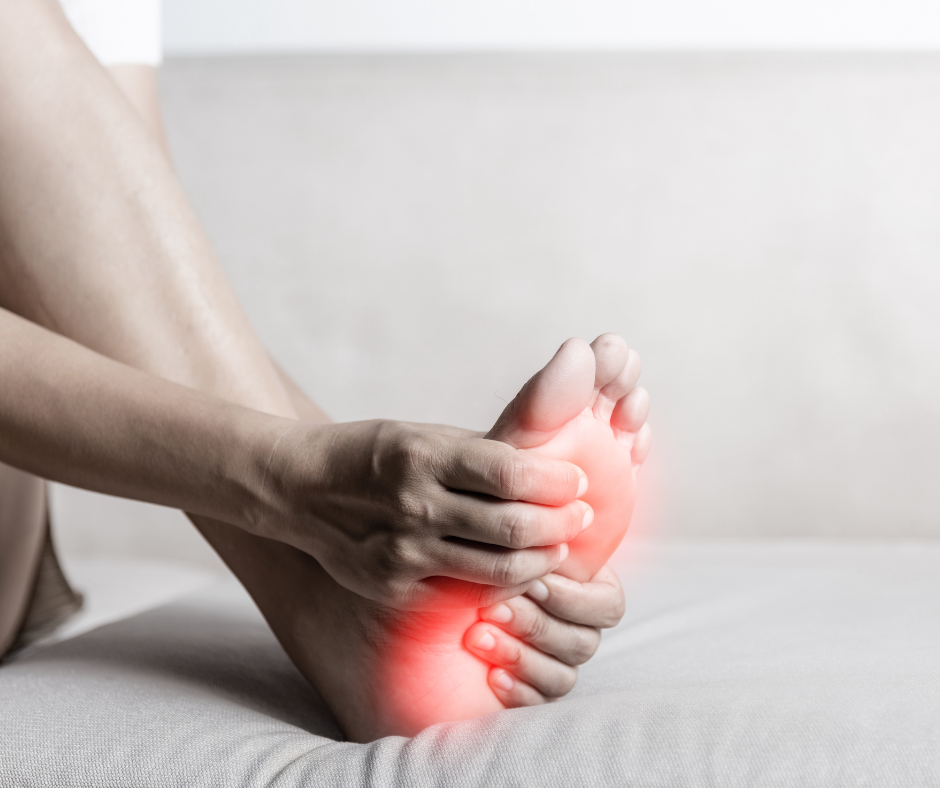Welcome to the information section for Medical and Healthcare Professionals.
While many acute injuries and some foot and ankle conditions evidently require a specialist referral, others are less clear-cut. Our Consultant Orthopaedic Surgeons provide a concise guide to when to refer, what to look for and commonly missed problems.
Here you will find information on the following;
Refer a Patient
Refer
The sprained ankle which does not heal steadily within two months of the injury taking place.
Bear in mind
- Standard x-rays will not show damage to the articular surface of the talus, lateral ligament insufficiency, tendon injury or synovial impingement.
- Even if the patient can walk, this does not exclude the possibility of a fracture. The Jones fracture of the 5th metatarsal occurs on the top of the foot, often with an ankle sprain, but is often missed.
- If there is swelling in the foot, rather than ankle, with bruising on sole of foot, promptly refer. This strongly indicates a Lisfranc ligament injury or fracture, which is a significant injury.
Referral to a specialist for surgery is often only considered at an advanced stage. But earlier referral is very beneficial because much can be done before major surgery.
Refer
As soon as the patient is in pain and/or experiences reduced function.
Bear in mind
- Orthotics prescribed by a podiatrist can alleviate symptoms considerably.
- Arthroscopy is a very good treatment option for clearing scar tissue and removing arthritic spurs, but many patients are referred too late for this to be considered.
- Early referral for patients with rheumatoid arthritis is essential; feet in this patient group are often undertreated.
- New generation ankle replacements now provide a reliable alternative to fusion for many patients.
About one in 10 people experience heel pain at some stage. About 80 per cent of this group will get better either with relative rest and conservative treatment (calf stretching exercises guided by a physiotherapist). However, one in five will not improve.
Refer
No improvement after six months, including conservative treatment.
Bear in mind
- Heel pain is commonly caused by plantar fasciitis, but can also be due to insertional achilles tendinopathy and a stress fracture of the calcaneal (heel bone).
- Steroid injection is not recommended due to risk of Achilles tendon rupture.
- Shockwave therapy is now well established as being an effective treatment for heel pain.
- A smaller proportion will require calf release surgery due to the muscular structure of their lower limbs.
Around a third of adults will develop a bunion, with women more likely to be affected than men.
Refer
If there is pain, an increasing deformity of the big toe or if the bunion is causing further forefoot deformity, for example, hammer toe.
Bear in mind
- Bunions can be corrected very successfully with surgery and new techniques significantly reduce tissue trauma, swelling and post-operative pain.
- A bunion which causes no pain should not be operated on for cosmetic reasons.
Another very common foot condition and while some people manage perfectly well with very little arch, others will experience significant problems.
Refer
If there is pain (not necessarily a lot), if there is stiffness or hypermobility, if the patient wears out shoes very quickly and if feet seem weak, if there is swelling on the inside of the ankle and if the deformity is increasing.
Bear in mind
- Pain behind the posteromedial aspect of the ankle is a strong indication of a tibialis posterior tendon dysfunction and this will get progressively worse.
- Treatment options and outcomes are far better if undertaken at an early stage.
- Calcaneal osteotomy (heel shift surgery) to address very poor alignment can now also be undertaken as a minimally invasive procedure.
We value your Patient referrals and want to make this process as easy and efficient as possible. If you have any queries, prior to referring a Patient, please do not hesitate to call one of us at the Clinics detailed below.
To refer a patient for an appointment with any of our Consultants, please complete the Patient Referral Form. Alternatively you can download the form and either:
- Email it to; [email protected] detailing your choice of hospital
- Post it to your preferred hospital
Alternatively, please call your preferred hospital clinic. All lines are open from 9am to 5pm, Monday to Friday.
Patient Referral
Consultant Lectures and Visits
If General Practices or groups of physiotherapists would like one of the LFAC Consultants to visit and lecture formally or informally, please contact Matthew Solan on 02070783800 at the St John and St Elizabeth Hospital.


News & Articles
Causes of Morton’s Neuroma
Understanding all the different causes of Morton’s neuroma is your first step toward finding...
Minimally Invasive Bunion Treatment vs Traditional Bunion Surgery
Bunion treatment has changed
Recovery After Morton’s Neuroma Treatment
Morton's neuroma treatment is common - here's what to expect
Understanding Big Toe Arthritis: A Comprehensive Guide
Discover answers to FAQs about Big Toe Arthritis, including what is Big Toe Arthritis,...
Achilles Tendon Insertion Pain: A Comprehensive Guide
Learn about insertional Achilles tendinopathy symptoms, treatment options, and recovery tips from the experts...
How to Treat an Old Ankle Sprain
Knowing how how to treat an old ankle sprain correctly will help you get...
When Should You See A Consultant About Your Ankle Sprain?
If you're wondering when you should see a consultant about your ankle sprain, read...
What is the difference between Tendonitis and Tendinosis?
Understanding the difference between tendonitis and tendinosis properly means you'll get the right help...
The Best Ankle Strengthening Exercises
Simple ankle strengthening exercises can make a difference in preventing future problems and improving...
Should I Have Ankle Replacement Surgery?
Answering the question 'should I have ankle replacement surgery?' looking at the symptoms, conditions...
Frequently Asked Questions (FAQ) About Plantar Fasciitis
Discover answers to FAQs about Plantar Fasciitis, including what is Plantar Fasciitis, what causes...
When Should You See a Specialist for Ankle Pain?
The differential diagnosis of ankle pain encompasses numerous potential conditions making evaluation essential for...
The Benefits of Custom Orthotics for Foot and Ankle Health
Battling chronic pain, recovering from an injury, or seeking preventive care? Custom orthotics could...
Radiofrequency Treatment for Morton’s Neuroma
Learn more about the different types of radiofrequency treatments for Morton's Neuroma.
Understanding Ankle Arthritis: A Comprehensive Guide for Patients
Learn more about what is ankle arthritis; a degenerative condition that affects the ankle...
Subscribe to our newsletter
Stay up to date with the latest LFAC news. You can read all of our past newsletters here.
Sign up now to receive our e-newsletter and discover all of the latest news, offers and events before anyone else















